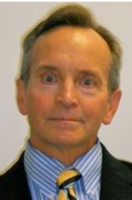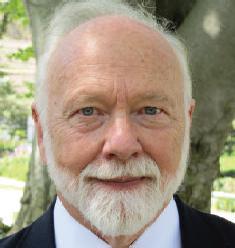Division 6: Additional Resources
Articles and Interviews with Clinical and Community Psychologists appear on this page, grouped by year of publication with the newest articles and interviews at the top of their sections.
Articles
- Remembering Ray Fowler, by Daniel Dodgen, 2015.
- Innovations in Collaboration: Joint Conference on Psychosocial Support in Disasters, by Daniel Dodgen, 2015.
- Efficacy of a Long-Term Trauma Focused CBT in PTSD: Major, Depression and Anxiety Disorders in Victims of Terrorism, by Clara Gesteira, 2015.
- A Brief Summary of Conversion Disorder Treatments, by Pedro Altungy Labrador, 2014.
- Terrorism and Armed Conflict: The importance of applying evidence-based practices beyond levels of development, by Clara Gesteira Santos, and James Michael Shultz, 2014.
- Overview of Mexican Counselor's Functions, by Catalina Rodríguez Pichardo, 2014.
- Violence Toward Parents, by María González-Álvarez & Noelia Morán, 2013.
- Beyond Numbers, by B. Reguera-Briz and P. Altungy, 2013.
- Psychology and the Canterbury NZ Earthquakes, by Neville Blampied, 2012.
- The Development of the Profession of General Health Psychologist and the Master's Degree in General Health Psychology: Challenges, Opportunities and Threats for Clinical and Health Psychology in Spain, by Maria Paz Garcia-Vera, 2012.
- Research and Professional Challenges of a Pakistani Psychologist, by Najma Najam, 2012.
- Indonesian Clinical Psychologists in Brief History, by Monty Satiadarma, 2012.
- Students' Experiences: The real life of an exchange student in Madrid, by Sabrina van Dijk, 2012.
Interviews

Read an interview with Professor James Shultz about Trauma Signature Analysis
Trauma signature (TSIG) analysis is an evidence-based method that examines the interrelationship between population exposure to a disaster, extreme event, or complex emergency and the interconnected physical and psychological consequences for the purpose of providing timely, actionable guidance for effective mental health and psychosocial support (MHPSS) that is organically tailored and targeted to the defining features of the event (Shultz & Neria 2013). Read more...

Read an interview with Professor Sylvia Marotta-Walters about Complex Trauma
Complex trauma does not currently exist as a diagnostic category in the DSM system though it is in the ICD. It is a term that is used to encompass chronic or long term trauma that develops over a period of time and/or at an early stage of life, rather than a single extreme exposure. It is also called developmental or attachment-related trauma. Historically it evolved from what was called DESNOS, or disorders of extreme stress not otherwise specified. Read more...
 Important Challenges Facing Clinical Psychology, an interview with Doctor Specialist in Psychiatry Zelde Espinel (Colombia), 2013
Important Challenges Facing Clinical Psychology, an interview with Doctor Specialist in Psychiatry Zelde Espinel (Colombia), 2013
During my social service year (“año rural”) I was one of 2 community physicians based in Puerto Nariño, in Amazonas, Colombia’s most southerly department (state). Puerto Nariño is the second municipality of the Amazonas department of Colombia, located in an estuary along the shore of the Amazon River. The municipality has about 2,000 residents but the hospital serves the larger surrounding area, a catchment area of about 6,000.
Puerto Nariño is an experimental ecological community that is entirely pedestrian and no motorized vehicles are permitted. Travel to the capital of Amazonas, Leticia, the only other Colombian municipality in the region takes place by motorized boats, traveling along the Amazon River. Read more...
 Important Challenges Facing Clinical Psychology, an interview with Professor Dan O'Leary, 2012.
Important Challenges Facing Clinical Psychology, an interview with Professor Dan O'Leary, 2012.
Having treatments accepted by insurance companies and having reasonable reimbursement rates for providers. In the US males do not enter psychology as they used to because they do not see that they can make a very good living/salary with insurance rates often being low per hour. Having providers actually use empirically supported treatments. Having researchers collaborate more with clinicians to develop and refine treatments that will be in fact used in the field by the clinician.
